‘400 million users by the end of the year’: Samsung on its ambitious Galaxy AI plans and the ‘powerful’ new Galaxy S25 FE
Exclusive: Samsung’s specialists talk new products and AI for the everyday user
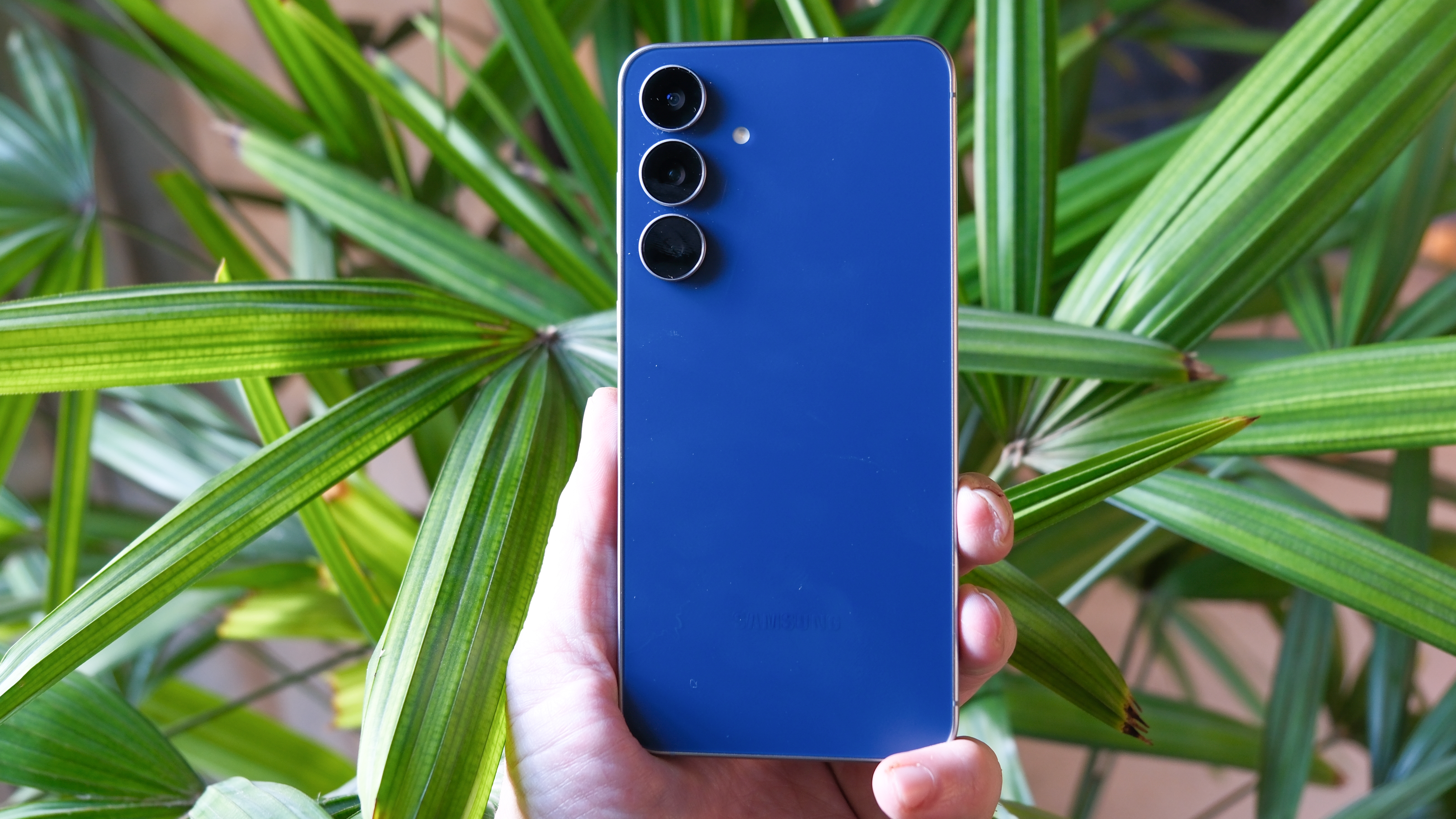
It’s been a busy year for Samsung when it comes to new hardware. At IFA 2025, the Korean tech giant revealed the Galaxy S25 FE, Galaxy Tab S11, and Galaxy Tab S11 Ultra, expanding its mobile lineup with a more accessible version of the flagship Galaxy S25 and two powerful new tablets.
The Galaxy S25 FE is the latest in Samsung’s line of cheaper FE flagships, condensing the essential features of the Galaxy S25 into a cheaper handset, with a larger 6.7-inch display, a triple-camera system, and full access to the Galaxy AI suite.
As for the new tablets, the Galaxy Tab S11 and Galaxy Tab S11 Ultra follow on from last year’s Galaxy Tab S10 Plus and Galaxy Tab S10 Ultra. The regular Galaxy Tab S11 returns to an 11-inch form factor, while the Galaxy Tab S11 Ultra sports an impressively huge 14.6-inch display.
Both tablets are powered by the MediaTek Dimensity 9400+ chipset, and again offer full support for Galaxy AI with additional features tailored to the tablet form factor. AI formed a major part of the brand’s messaging surrounding the Galaxy Z Fold 7 and Galaxy Z Flip 7 foldables released earlier this year, and Samsung has increasingly focused on AI with each subsequent launch.
To find out more about the brand’s latest devices and plans to bring Galaxy AI to millions more users, I hopped on a call with Mobile Experience (MX) VP of Product and Marketing at Samsung UK, Annika Bizon, and Smartphone Product Specialist at Samsung MX, Kadesh Beckford.
'You get the full Galaxy AI experience' – Galaxy S25 FE
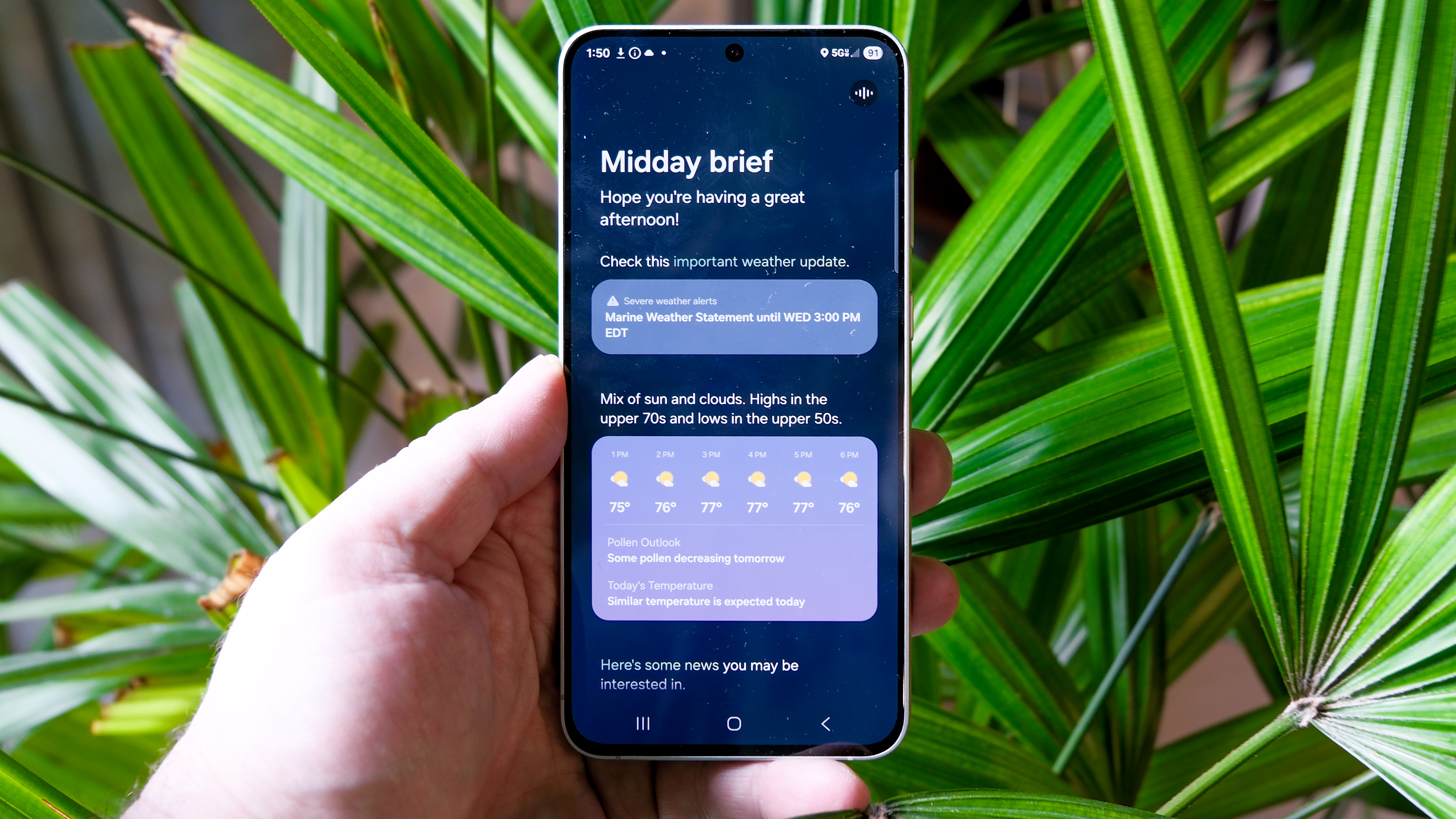
The Galaxy S25 FE occupies a middle-ground between the most expensive A-series phones and the flagship Galaxy S25 – on paper, it looks like a pretty good deal for those who might be considering either option.
Here at TechRadar, we test all the best Samsung phones to find out which users might benefit from each specific device. But what does Samsung itself think?
Sign up for breaking news, reviews, opinion, top tech deals, and more.
“You get the full Galaxy AI experience when it comes to the FE,” said Beckford. “With the A-series, you have what we call Awesome Intelligence, which is great for editing pictures and making other fine-tune changes to your content. When you want to get live translation, full multimodal capabilities, and so on, that’s all been implemented into the S25 FE with no compromises."
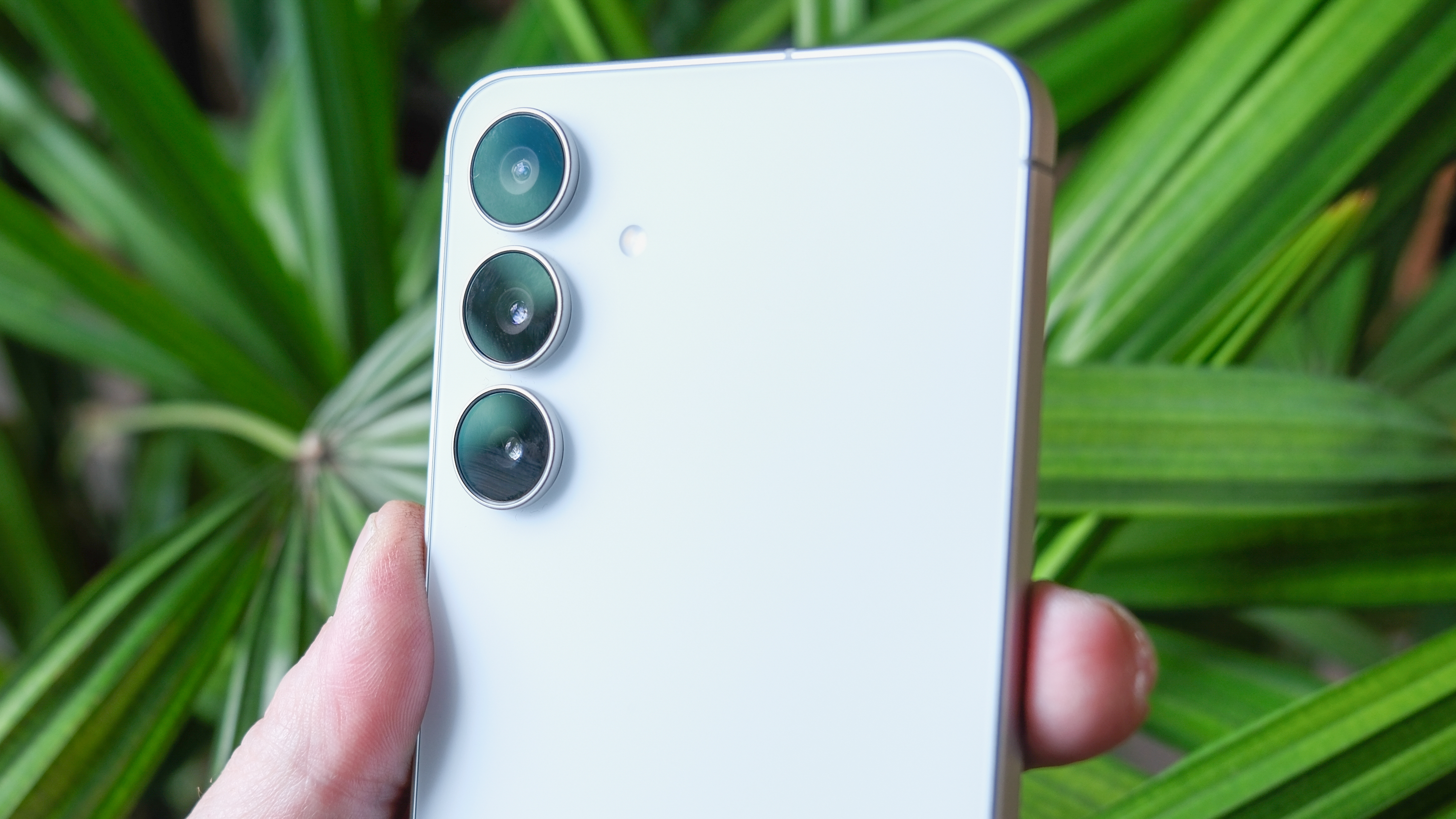
Beckford was also keen to emphasise the hardware specs of the new handset: “With that 6.7-inch display on the FE, you’ve got a larger screen-to-body ratio. It’s just over 90%, where you're looking at about 87% on its predecessor.”
He added: “The S25 FE is even slimmer than before – we’ve trimmed it down by 0.6mm, so now it’s 7.4mm thick versus 8mm on the S24 FE.”
The phone also boasts a new 12MP selfie camera and larger vapor chamber compared to last year’s model, as well as the Exynos 2400 chipset and a triple camera array that impressed us during our hands-on Galaxy S25 FE review.
“It's super powerful," he added, “[and] we’ve actually put a bigger battery in it. We’ve improved the phone’s battery by 200mAh to 4,900mAh, and it has 45W super fast charging. I can get over 65% in just 30 minutes”.
Beckford’s answers suggest Samsung is making smart hardware improvements with the goal of attracting those who prefer a premium experience, while also focusing on the type of AI features we saw with the launch of the Galaxy Z Fold 7 and Galaxy Z Flip 7 earlier this year – though I didn’t get a specific answer as to whether the S25 FE is “for” any one user.
'This is going to last the test of time' – Galaxy Tab S11 and S11 Ultra
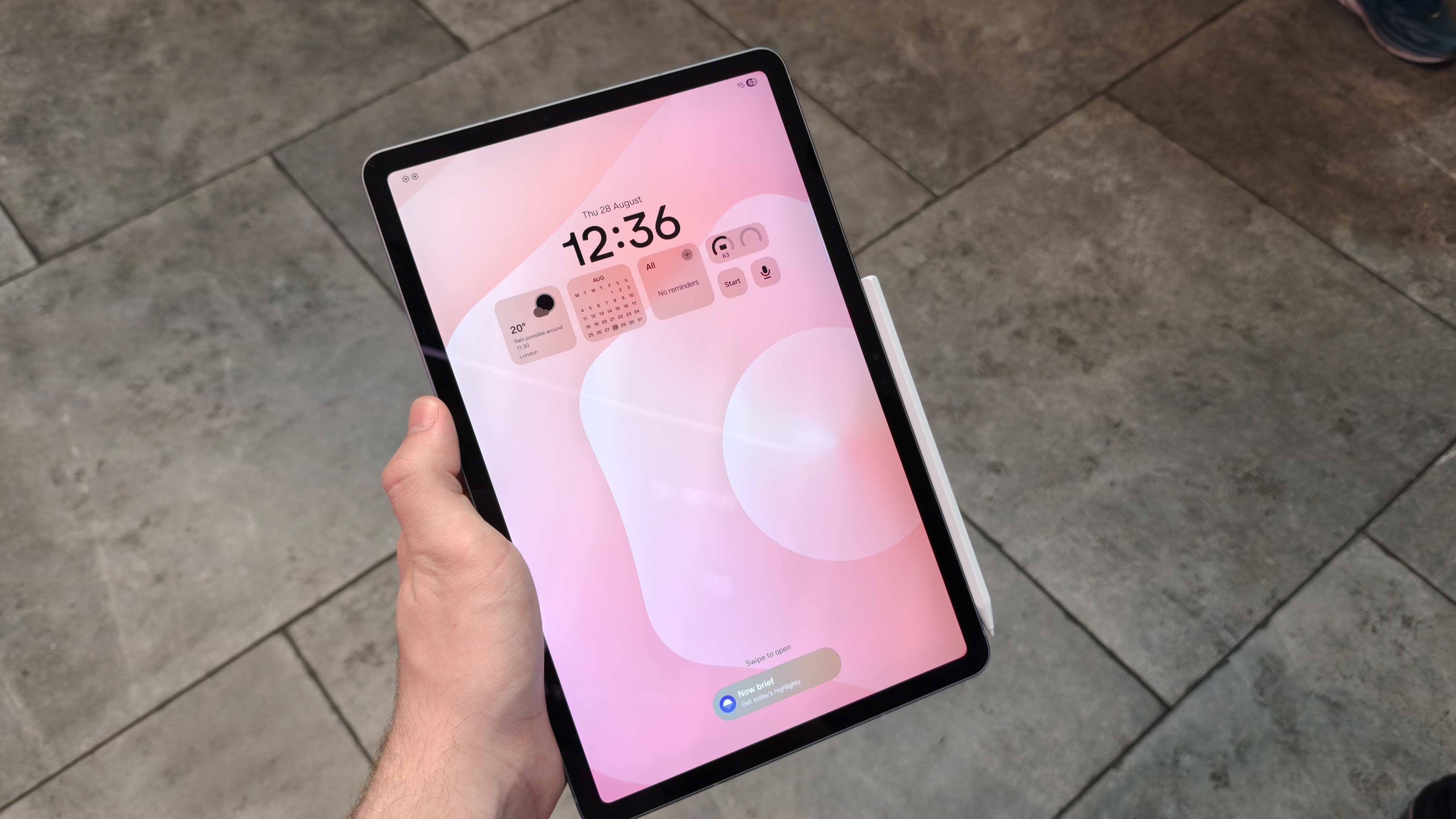
As for the new tablets, the Galaxy S11 and Galaxy S11 Ultra, Samsung has focused on hardware performance, and Beckford mentions that the new tablets boast 24% better CPU performance and a 33% faster NPU (Neural Processing Unit) for AI tasks.
He added that the new tablets are designed for longevity: “Both of these are thinner, with huge battery capacities – you’ve got 11,600mAh in the Ultra. That means [these products] are going to last the test of time, especially with IP68 water and dust resistance.”
The new tablets also come with a reworked DeX mode, which moves even closer to a laptop-style experience. With iPadOS 26, and its Mac-style experience for iPads, right around the corner, I asked Annika Bizon for Samsung’s take on the tablet versus desktop debate.
“I would say it's actually about how you use a device,” Bizon explained. “I use [a tablet] with my laptop quite a lot. Often I'll be sat there and I'll have my notes on one [screen] using Samsung DeX beside the PC when I'm actually doing, you know, a Teams call, or so on. So I think it's all about your personal choice and consumption.”
Bizon continued: “We don't want people to stop using laptops, and we don't want people to just use tablets. We want them to use them however they want to use them and, fundamentally, most of the time together.”
'The goal is to make Galaxy AI accessible to as many people as possible' – Galaxy AI
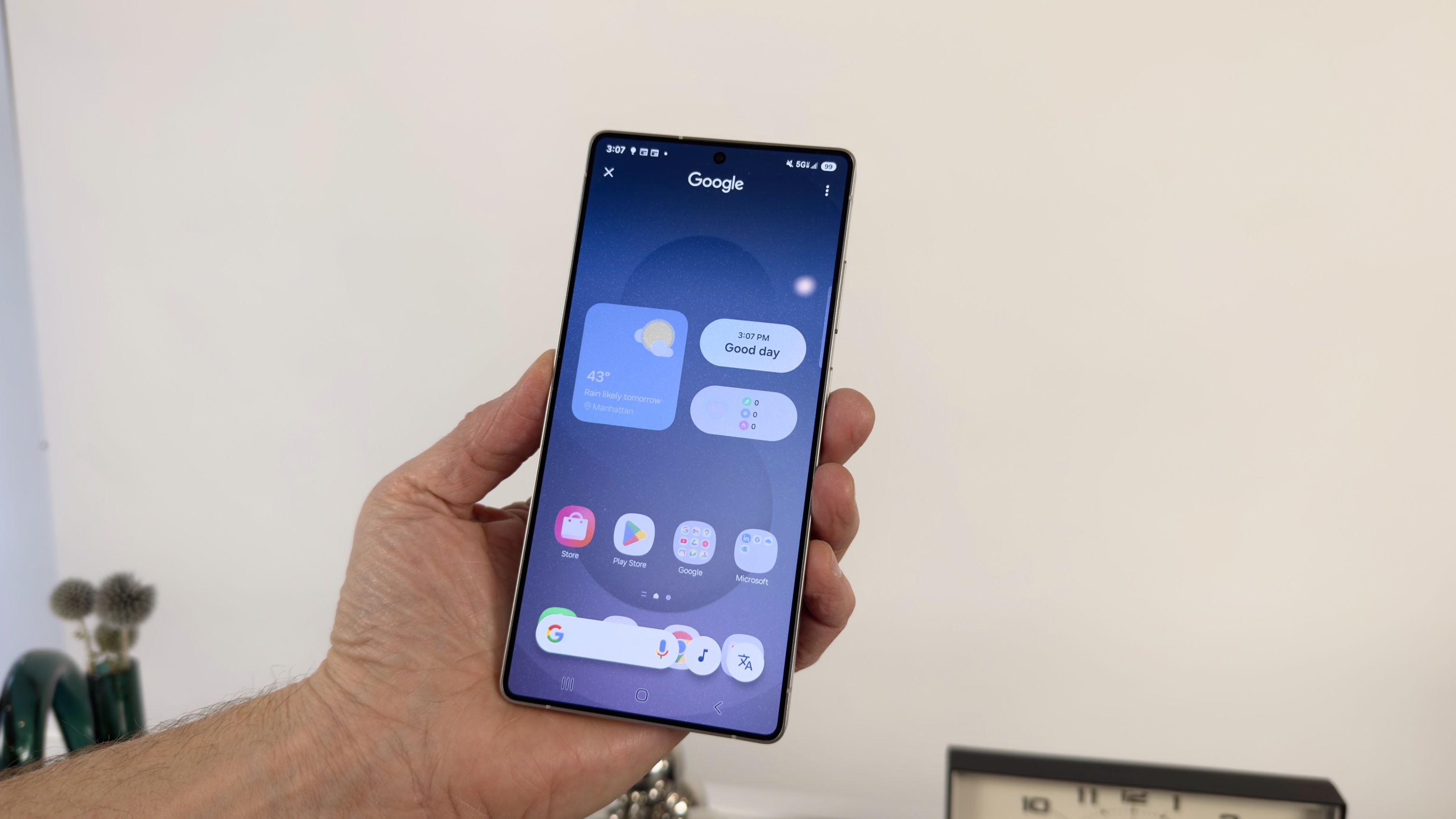
Amidst all the specs and scenarios, Beckford shared one of Samsung’s major goals for the last stretch of 2025: “You may have seen on stage, Annika shared that we’ve currently got 200 million Galaxy AI users – by the end of the year, with devices like the FE, that’s going to go up to 400 million users.”
Adding another 200 million users to any product in the span of about three months is a pretty major task.
I asked Bizon to elaborate on what Samsung hopes this journey will look like: “The goal for us to to make Galaxy AI accessible to as many people as possible. And what we’re already seeing is the rate of people using it on a daily basis increasing exponentially across the world.”
We don't want people to stop using laptops, and we don't want people to just use tablets
Annika Bizon
Bizon added: “We started with Circle to Search, then saw that expand into our Interpreter, then things like generative AI and creative tools. People are using these all the time.”
“We want to get as many people as possible using [these tools] on a regular basis,” Bizon continued, “and actually, whilst we talk about them being AI features, truthfully, users don't need to know they're AI – they just need to know that it's working for them and it's giving them time back.”
As mentioned, the Galaxy Tab S11 series comes with new AI features optimized for larger displays – which, in theory, makes it easier for new users to adopt Galaxy AI. Beckford explained: “You get more floating tools – sometimes you don’t need AI to take up the complete screen [...] it’s just simple ways that enable you to use AI on that large canvas – Circle to Search doesn’t take up your complete screen, for example.”
Bizon told me that Samsung’s consumer research has picked up on two different elements as priorities in the age of AI: “You're looking at the actual hardware of a device and how we bring that to market, and then coupling that with, 'What AI features does the consumer need?' [We're exploring how] those two things marry in the best possible way."
You might also like
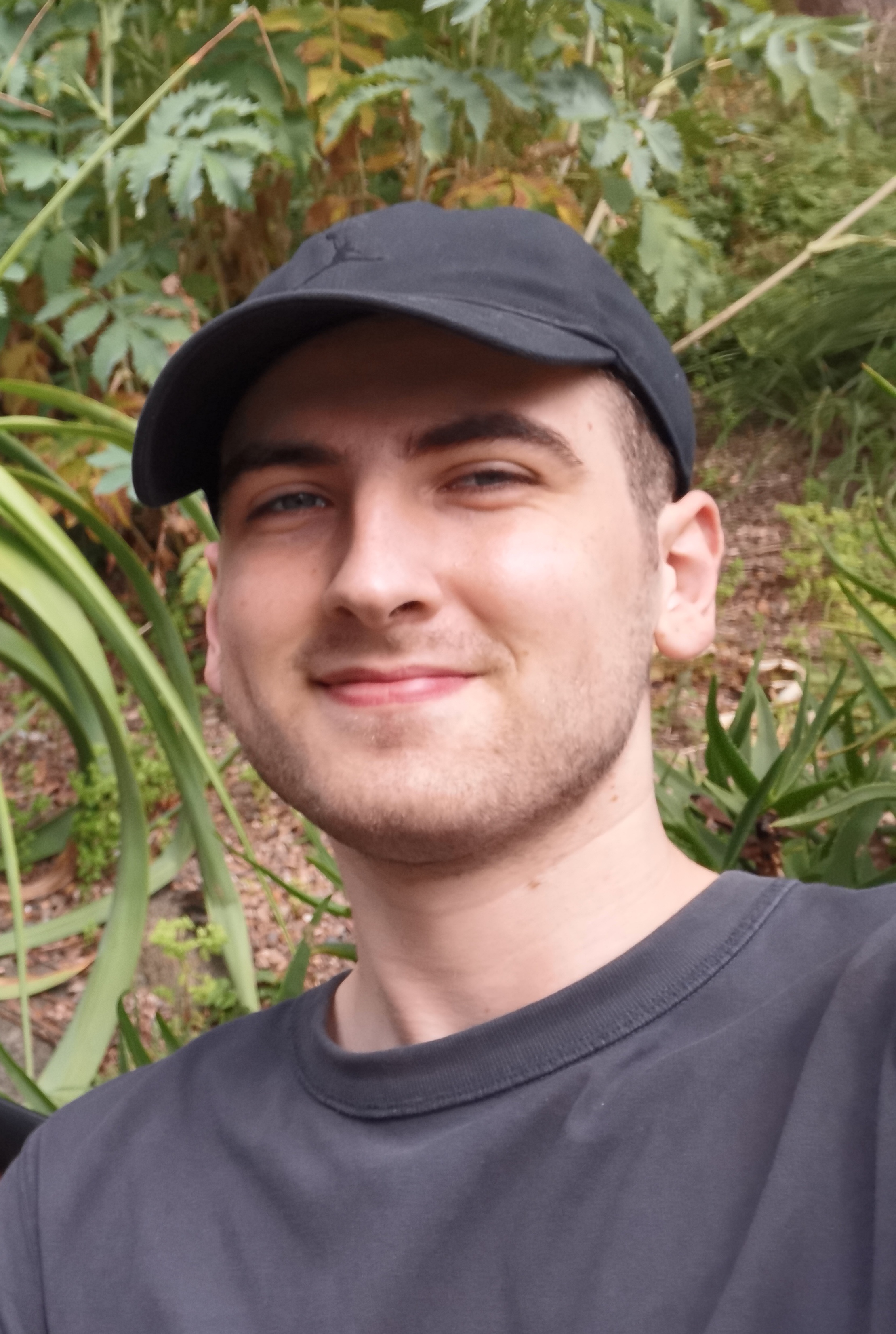
Jamie is a Mobile Computing Staff Writer for TechRadar, responsible for covering phones and tablets. A lifelong tech-obsessive, Jamie began his writing career as a music blogger before studying journalism at Goldsmiths College, and joined TechRadar in 2024. He thinks the iPhone 5S is the greatest phone of all time, but is currently an Android user.
As well as reporting on the latest in mobile hardware, software, and industry developments, Jamie specialises in features and long-form pieces that dive into the latest phone and tablet trends. He can also be found writing for the site's Audio and Streaming sections from time to time, or behind the decks as a DJ at local venues around London.
You must confirm your public display name before commenting
Please logout and then login again, you will then be prompted to enter your display name.